Latest News
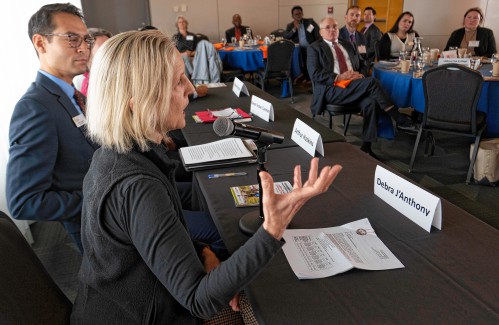
Destination Hampshire County: Experts discuss ways to boost, advocate for tourist economy
AMHERST — Visitors from Lexington and Marblehead were among those who came to see “Generic Male,” the off-Broadway physical theater performed at Northampton’s Academy of Music in early March.

Booster group aims to ease disruptions during Northampton’s downtown makeover
NORTHAMPTON — A coalition of leaders affiliated with the city and its major business associations have come together to advocate for the Picture Main Street project, currently on pace to begin construction next year to dramatically remake the city’s downtown.
Most Read
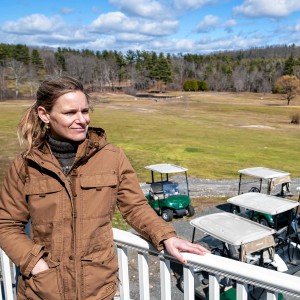 Land trusts eye purchasing Beaver Brook Golf Course, plan on ‘rewilding’ 288-acre property
Land trusts eye purchasing Beaver Brook Golf Course, plan on ‘rewilding’ 288-acre property
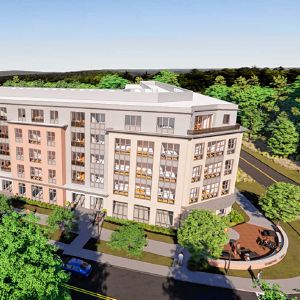 Five-story building set to rise at former Rafter’s site in Amherst
Five-story building set to rise at former Rafter’s site in Amherst
 The ills of a billion-dollar enterprise: The slow-death of the cannabis industry, and what might be done to reverse the trend
The ills of a billion-dollar enterprise: The slow-death of the cannabis industry, and what might be done to reverse the trend
 Smith College reaches Div. III National Championship Game for second straight year following 49-47 victory over Wisconsin-Oshkosh
Smith College reaches Div. III National Championship Game for second straight year following 49-47 victory over Wisconsin-Oshkosh
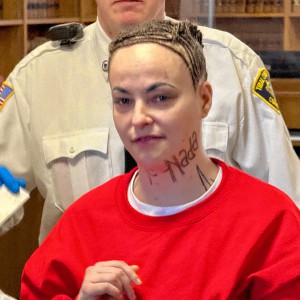 Northampton woman jailed in dog death
Northampton woman jailed in dog death
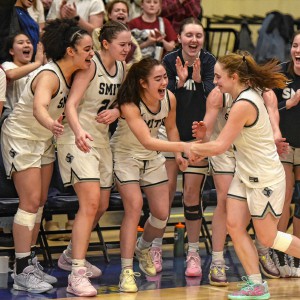 NCAA Div. 3 Women’s Basketball: Smith College falls to NYU in title game, 77-49
NCAA Div. 3 Women’s Basketball: Smith College falls to NYU in title game, 77-49
Editors Picks
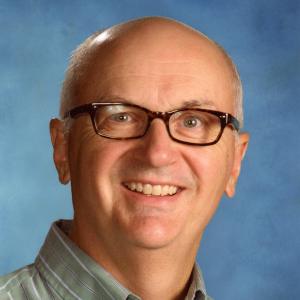 A Look Back, March 22
A Look Back, March 22
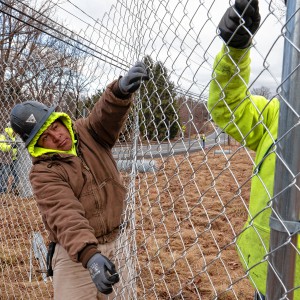 Photo: Condo project set to begin in Amherst
Photo: Condo project set to begin in Amherst
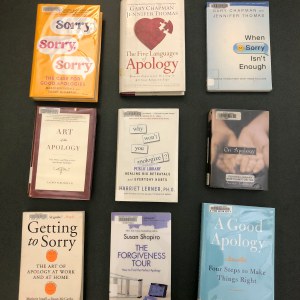 ‘Apologizing is a courageous act’: Forbes Library to host an apology installation and workshop
‘Apologizing is a courageous act’: Forbes Library to host an apology installation and workshop
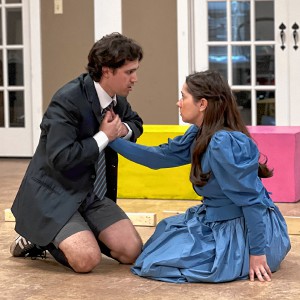 ‘Let’s be vulnerable together’: K and E Theater Group finds light in the darkness with ‘Spring Awakening’ performances in Northampton
‘Let’s be vulnerable together’: K and E Theater Group finds light in the darkness with ‘Spring Awakening’ performances in Northampton
Sports

NCAA Div. 3 Women’s Ice Hockey: Amherst College defeats Colby, 4-1, heads to Final Four
AMHERST — For the second time in three years, the Amherst College women’s hockey team is Frozen Four bound.
Opinion

Jennifer Bryan: Who are the real antisemites?
When antisemites like the Trump administration conduct a witch hunt for “antisemites,” lines blur and confusion rises, as the term antisemite becomes a tool of suppression. Read Timothy Snyder’s article [”‘Antisemitism’ and Antisemitism”] on the misuse and abuse of the word “antisemitism” for clarity as he reveals that “The American government’s war on higher education and freedom of expression is proceeding according to the same antisemitic rules of engagement as Russia’s war against Ukraine.” (The Russian foreign minister claims Hitler was Jewish.)
 Patricia Crosby: The bad boss
Patricia Crosby: The bad boss
 Paul DiLeo: Support for leader who pardons cop-beating thugs perplexing
Paul DiLeo: Support for leader who pardons cop-beating thugs perplexing
 Guest columnist Kathy Gregg: Anti-antisemitism: Trump’s double-cross on college funding
Guest columnist Kathy Gregg: Anti-antisemitism: Trump’s double-cross on college funding
 Judith Davidov: How could this happen?
Judith Davidov: How could this happen?

Your Daily Puzzles

An approachable redesign to a classic. Explore our "hints."

A quick daily flip. Finally, someone cracked the code on digital jigsaw puzzles.

Chess but with chaos: Every day is a unique, wacky board.

Word search but as a strategy game. Clearing the board feels really good.

Align the letters in just the right way to spell a word. And then more words.
Business
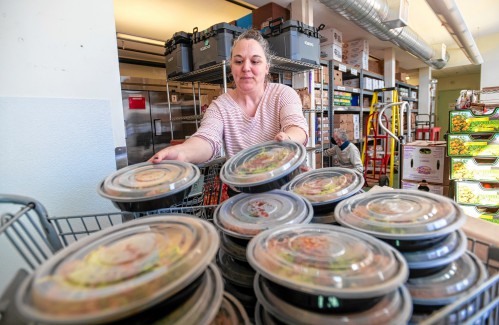
State pilot program puts restaurant takeout meals on food aid menus around region
NORTHAMPTON — More than a half-dozen restaurants in Hampshire County are partnering with survival centers in Northampton and Amherst to provide free meals to those facing food insecurity in the region as part of a larger initiative taking place statewide.
 Mill River Music jams: Northampton guitar shop relocates to larger digs on King Street
Mill River Music jams: Northampton guitar shop relocates to larger digs on King Street
 Area property deed transfers, March 21
Area property deed transfers, March 21
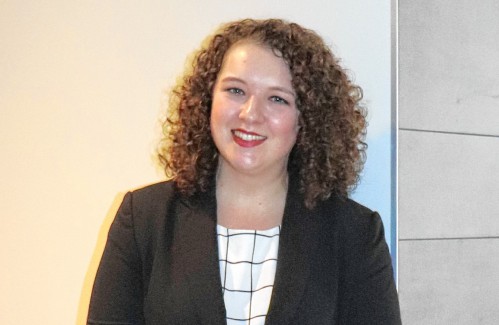 Making News in Business, March 21
Making News in Business, March 21
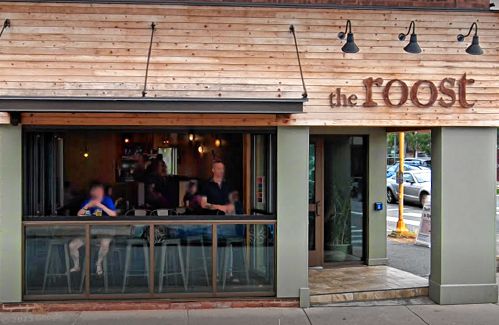 The Roost set to close in Northampton after 14 years
The Roost set to close in Northampton after 14 years
Arts & Life
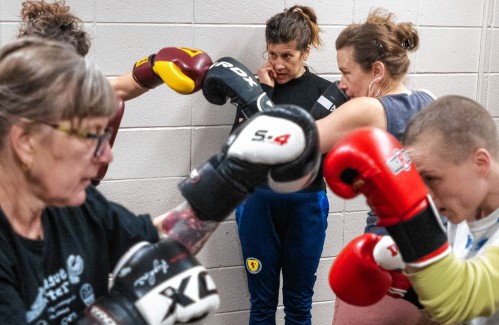
Fight like a girl: Professional boxer launches women-only, all-level classes in Greenfield
Local author, naturalist and former boxer Vanessa Chakour is leading a women’s boxing class at Franklin County’s YMCA.
Obituaries
 Geoffrey Hickin
Geoffrey Hickin
Great Barrington, MA - Geoffrey Halstead Hickin, 82, was born on June 30, 1942, in New London, CT, to Albert Throsell Hickin and Jane McClure Hickin. He passed on January 16, 2025, of natural causes in Great Barrington, MA, having been ... remainder of obit for Geoffrey Hickin
 Kathleen Furlani
Kathleen Furlani
Broad Brook, CT - Kathleen M. (Kessler) Furlani, 76, of Broad Brook, Connecticut peacefully passed away on March 16, 2025 in Uxbridge, MA. Kathy is survived by her husband, John Furlani, and her mother, Helen Kessler (96), of Broad Broo... remainder of obit for Kathleen Furlani
 Susan A. Berry
Susan A. Berry
Hatfield, MA/Catskill, NY - Susan (Sue) Ann Berry, age 71 died unexpectedly at her home in Hatfield, MA on March 4, 2025. She was born September 23, 1953 in Adams, MA, the daughter of William and Pearl (Briggs) Pfister. She grew up in ... remainder of obit for Susan A. Berry
 Guy Russell Marrocco
Guy Russell Marrocco
Northampton, MA - Dr. Guy Russell Marrocco, MD, MPH April 2, 1938 January 10, 2025 On January 10, 2025, Dr. Guy Russell Marrocco passed away at Baystate Regional Medical Center in Springfield, Massachusetts, following a brief sta... remainder of obit for Guy Russell Marrocco

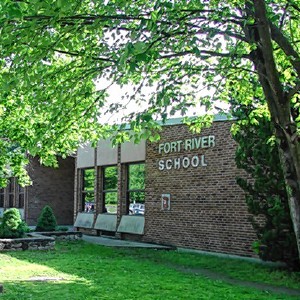 Families raise concerns about assault, other incidents at Fort River School in Amherst
Families raise concerns about assault, other incidents at Fort River School in Amherst
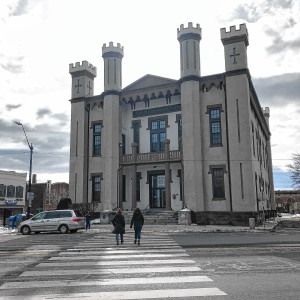 State doles out green grants to Northampton, Westhampton for school buildings
State doles out green grants to Northampton, Westhampton for school buildings
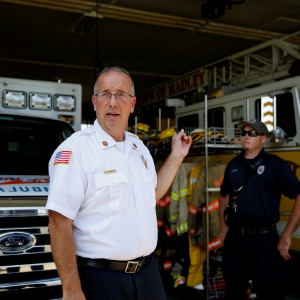 Hadley officials worry about costs to transition to town-run ambulance service; fire chief makes case for idea
Hadley officials worry about costs to transition to town-run ambulance service; fire chief makes case for idea
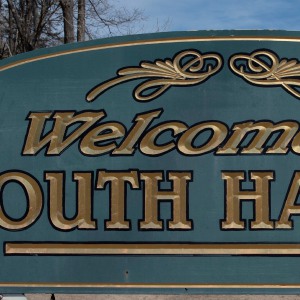 South Hadley election on April 8 to feature few contests
South Hadley election on April 8 to feature few contests
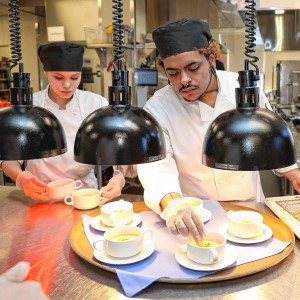 Area briefs: Mount Holyoke’s immigration discussion; Forbes to honor Szlosek; Amherst Young Feminists to screen film; HCC Culinary Arts open house
Area briefs: Mount Holyoke’s immigration discussion; Forbes to honor Szlosek; Amherst Young Feminists to screen film; HCC Culinary Arts open house
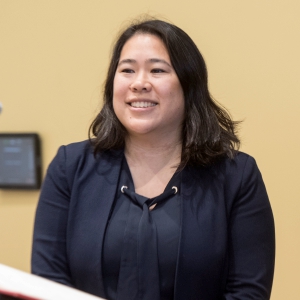 Multi-town contingent organizes education funding appeal for UMass legislative hearing
Multi-town contingent organizes education funding appeal for UMass legislative hearing
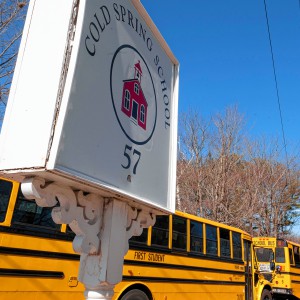 Strapped for school funding, Valley schools eye lagging state aid
Strapped for school funding, Valley schools eye lagging state aid
 As I See It: How Putin won the long game, with Trump
As I See It: How Putin won the long game, with Trump
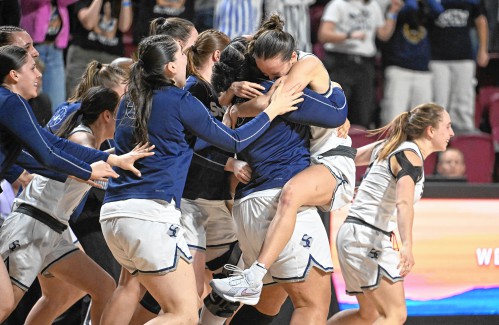 Smith College reaches Div. III National Championship Game for second straight year following 49-47 victory over Wisconsin-Oshkosh
Smith College reaches Div. III National Championship Game for second straight year following 49-47 victory over Wisconsin-Oshkosh Amherst College women’s hockey to host Colby in quarterfinal matchup on Saturday
Amherst College women’s hockey to host Colby in quarterfinal matchup on Saturday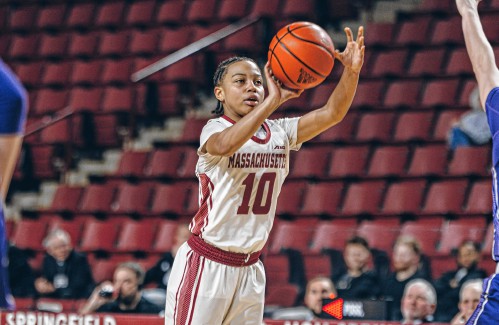 UMass women’s basketball: Minutewomen cruise past Stonehill, 86-40, in opening round of WNIT
UMass women’s basketball: Minutewomen cruise past Stonehill, 86-40, in opening round of WNIT  UMass Hockey: Standout forward Cole O’Hara in the mix for Hobey Baker Award
UMass Hockey: Standout forward Cole O’Hara in the mix for Hobey Baker Award There is a Season with Molly Parr: The secret’s in the sauce: Gluten-free, dairy-free Fried Tofu with Sweet and Sour Noodles
There is a Season with Molly Parr: The secret’s in the sauce: Gluten-free, dairy-free Fried Tofu with Sweet and Sour Noodles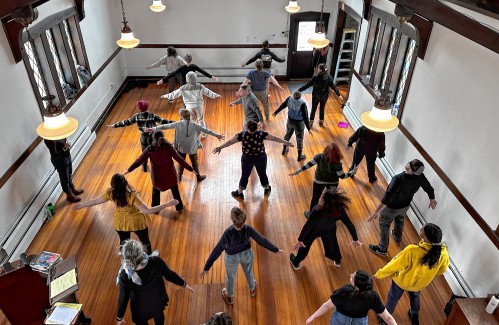 Macbeth, up close and personal: Second annual Montague Shakespeare Festival puts a new spin on the ‘psychological dark power drama’
Macbeth, up close and personal: Second annual Montague Shakespeare Festival puts a new spin on the ‘psychological dark power drama’ Arts Briefs: Silent film in Florence, McCartney’s music in Northampton, and more
Arts Briefs: Silent film in Florence, McCartney’s music in Northampton, and more Speaking of Nature: The bluebird of happiness: Finding solace in the birds at my feeders
Speaking of Nature: The bluebird of happiness: Finding solace in the birds at my feeders
